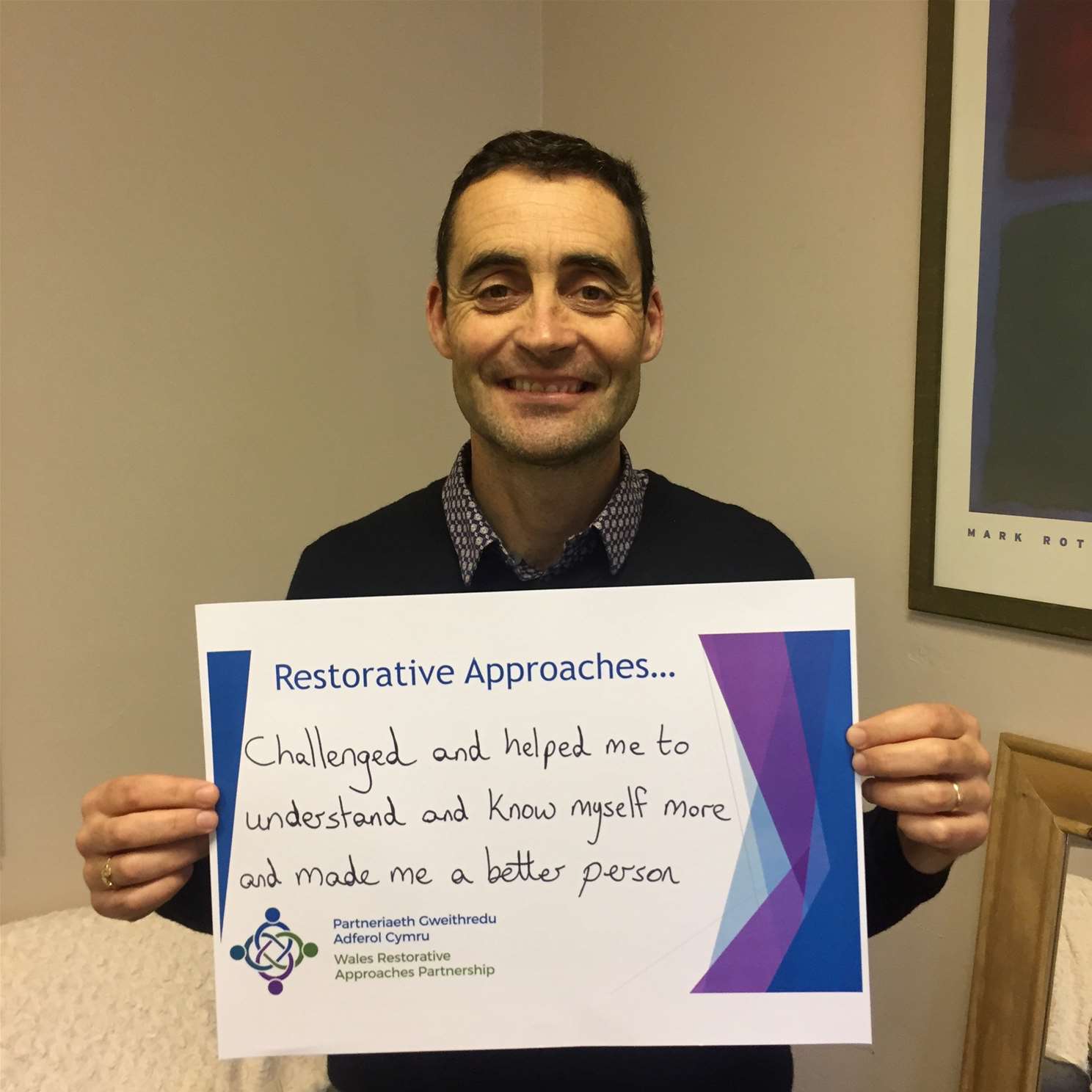I first came across Restorative Justice in Cardiff Prison in 1999, through my wife who established a national programme, SORI (Supporting Offenders through Restoration Inside), that was approved for prisons. I volunteered on one of these courses and was struck by one of the comments I heard from several of the participants. They said if only someone had used these skills when I was in school things may have been different.
The Restorative Approach is taking an active role and valuing the building and maintaining of relationships and not just waiting for things to go wrong. The more I connect positively with someone the less likely I am to harm them.
I first started Restorative Approaches in 2007 and found many of my skills were in line with what I was learning but it gave me a structured framework that improved my own skills of BMR. I became more consistent and became more confident in matching my high support with high challenge, which I had found difficult. I realised having difficult conversations with colleagues and pupils actually strengthened those relationships.
I did further training and enjoyed the Restorative Approach so much that I trained to become a trainer. This took a couple of years and was very different to teaching, which surprised me. The most difficult training I did was with my staff because of my own self-confidence and vulnerability. Thankfully the training went really well and the outcomes were great. Better relationships within the classroom both between the teacher and the pupils and between the pupils themselves, this resulted in improved attendance, results and more sociable and caring pupils.
As I saw the outcomes of this work I left teaching, which I loved, to start up Wales Restorative Approaches Partnership so that I would be able to share these skills with many more people and develop this work.
I have learnt so much in the last three years and been privileged to work with so many different people from schools, housing associations, local authorities, educational psychologists, charities, third sector organisations and families to name a few.
My current role is Client Relationship Manager, where I often meet new people to discuss how we can possibly work together, maintaining relationships with people who we are already working with and planning their next steps together. I still carry out training and practitioner work, which involves preparing and assessing if a facilitation meeting is appropriate between two or more people with the advantage of working for an independent body, and also developing new materials and providing restorative management supervision and wellbeing.
There are many other things my role includes and I feel very privileged to be able to work with so many people and share their journeys. I am proud of the work that people we have worked with are doing and the number of positives ripples this work has caused and how many lives it has changed already.
I remember so many positive things that people have said to us. One was, “this training has reminded me why I decided to enter teaching and I had forgotten, because I was tired and stressed. That relationships are really important and the more I valued relationships and included time to develop them in my teaching, the better the atmosphere in my class became. More learning happened because we were enjoying our time together rather than ‘I have got to get through this lesson!’”




